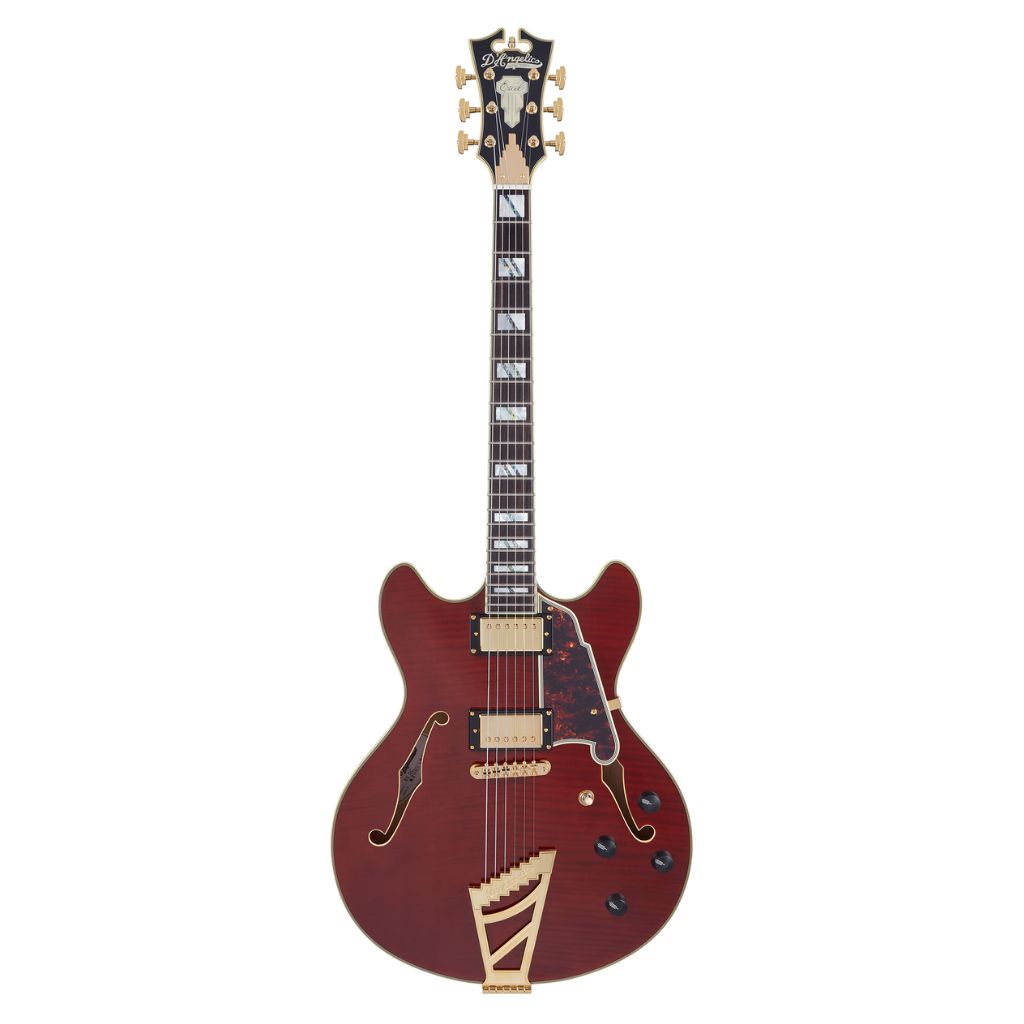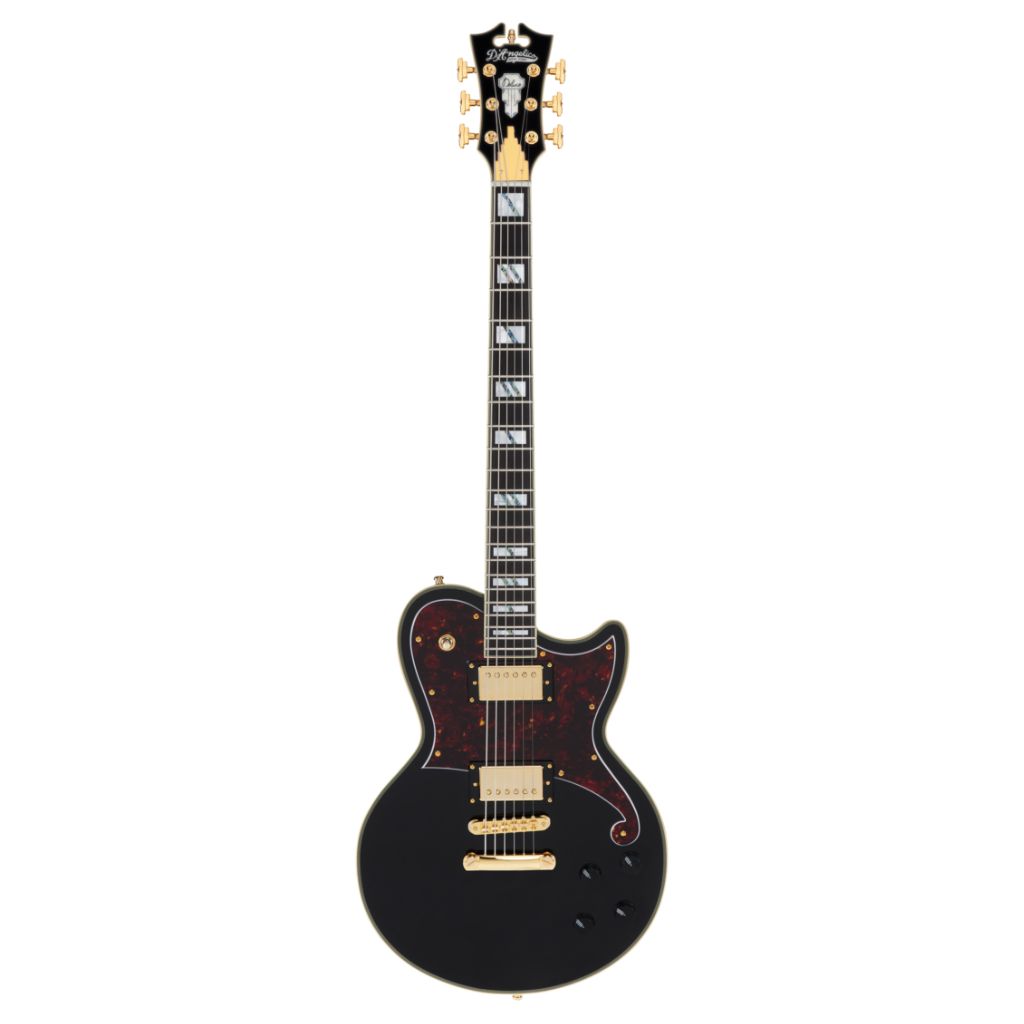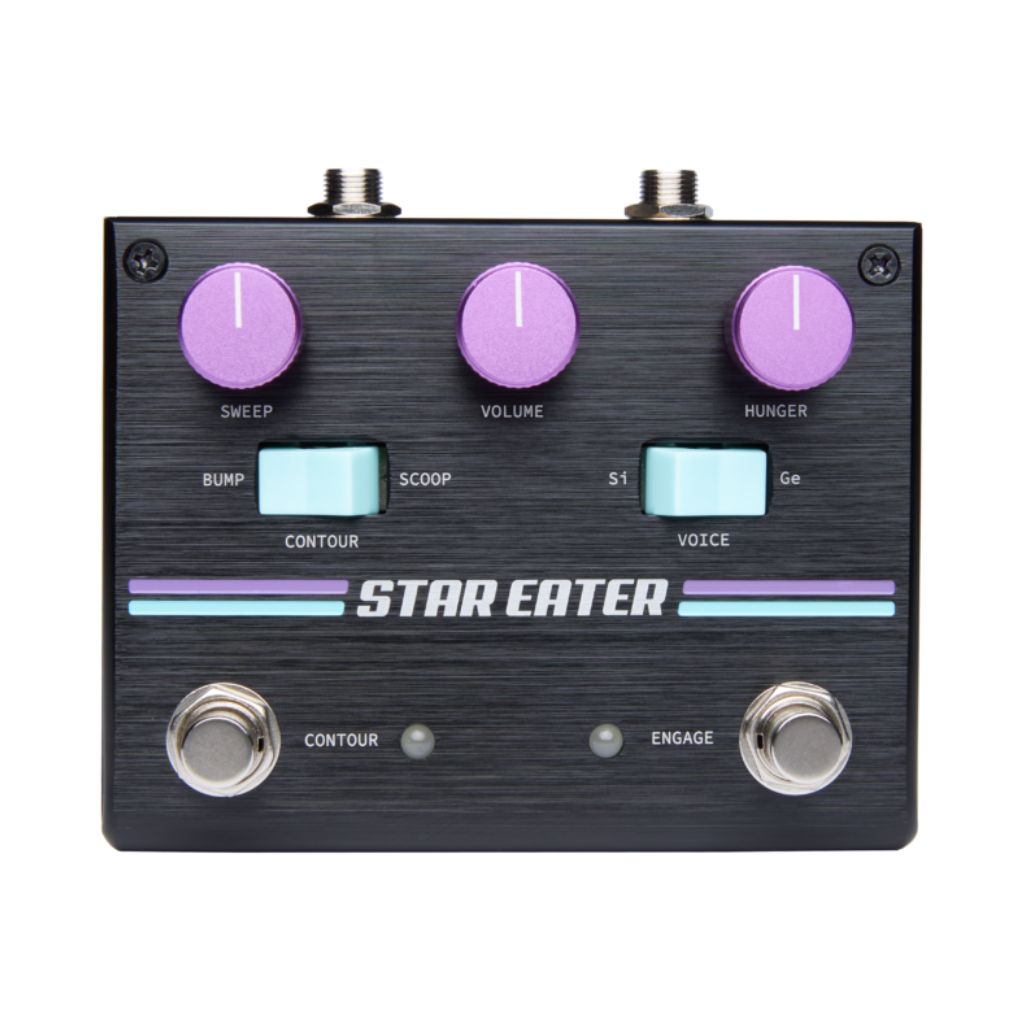Ukraine’s Roman Bulakhov on balancing jazz and rock, working with D’Angelico and making music in the face of an invasion
The Severodonetsk-born jazz firebrand leads a music double-life between his solo material and his work in hard-rockers Nervy.
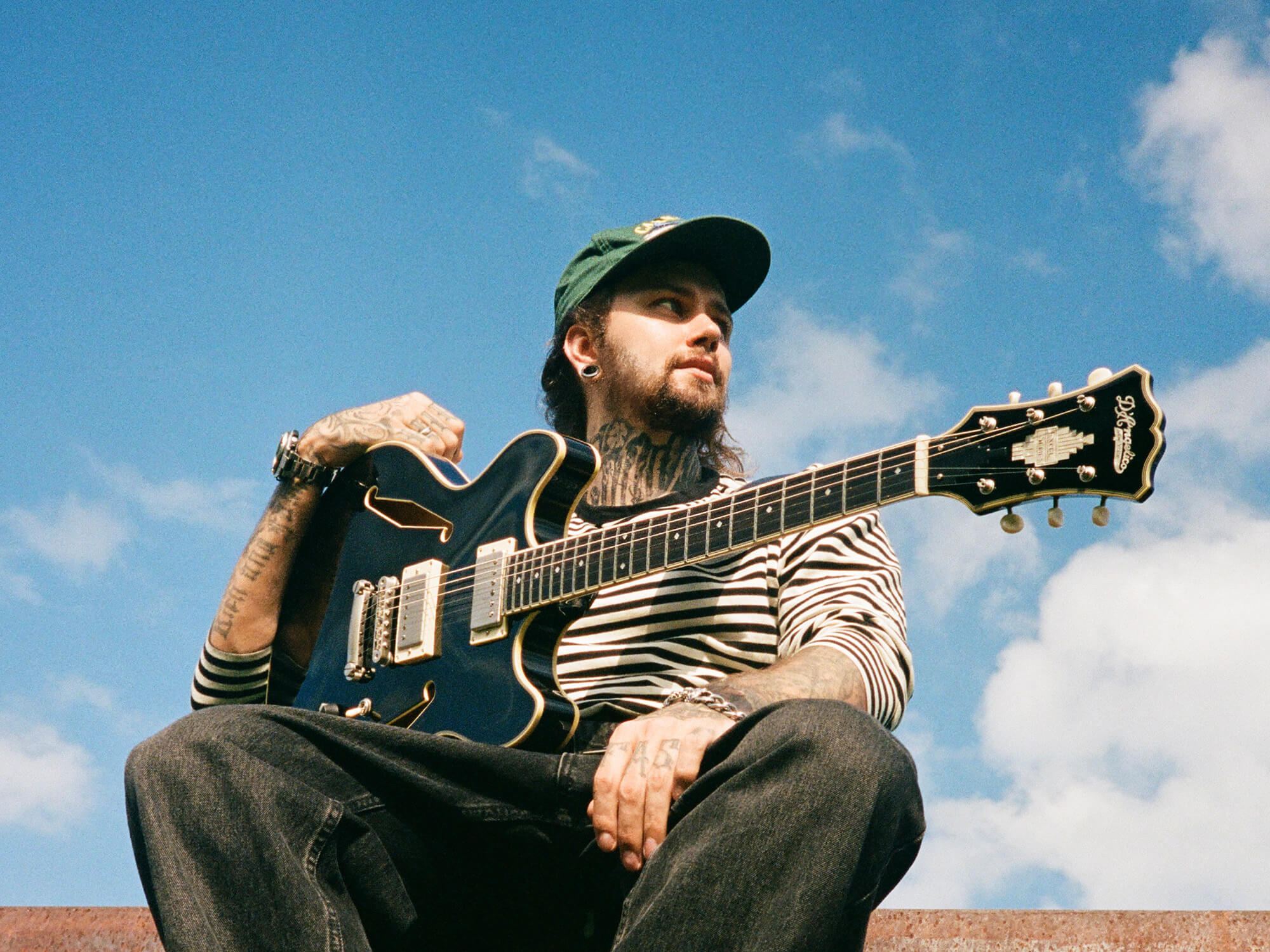
Roman Bulakhov. Image: Kostya Borovski
Featured in this article
Roman Bulakhov isn’t afraid to mix genres. It’s not surprising, really, as he leads a bit of a musical double-life, having both established himself as a leading presence in Ukraine’s jazz scene and a powerhouse rock guitarist in the band Nervy. His work as a rock guitarist is infused with jazzy leads and out-there chord progressions, and his solo material fuses firebrand instrumental jazz with rock and hip-hop production.
- READ MORE: Squirrel Flower on why dynamics matter: “I don’t like guitar music that’s just loud the whole time”
Born in Severodonetsk to a family of musicians, Bulakhov always knew he would be a musician too, and would eventually study jazz at Kharkiv Music College. After graduating, he made a name for himself in the Ukranian hard-rock band Nervy, although it wasn’t long before he made a return to jazz with his 2018 solo album Thoughts And Sounds.
His latest record, Surfing, was released last year. With its many collaborations, it showcases a vibrant musical scene still thriving in Ukraine – but many of its parts were recorded under the threat of Russian missile attacks, air-raid sirens howling between takes. We spoke to Bulakhov about recording music in the face of such adversity, as well as his history with guitar and his long-standing relationship with D’Angelico.
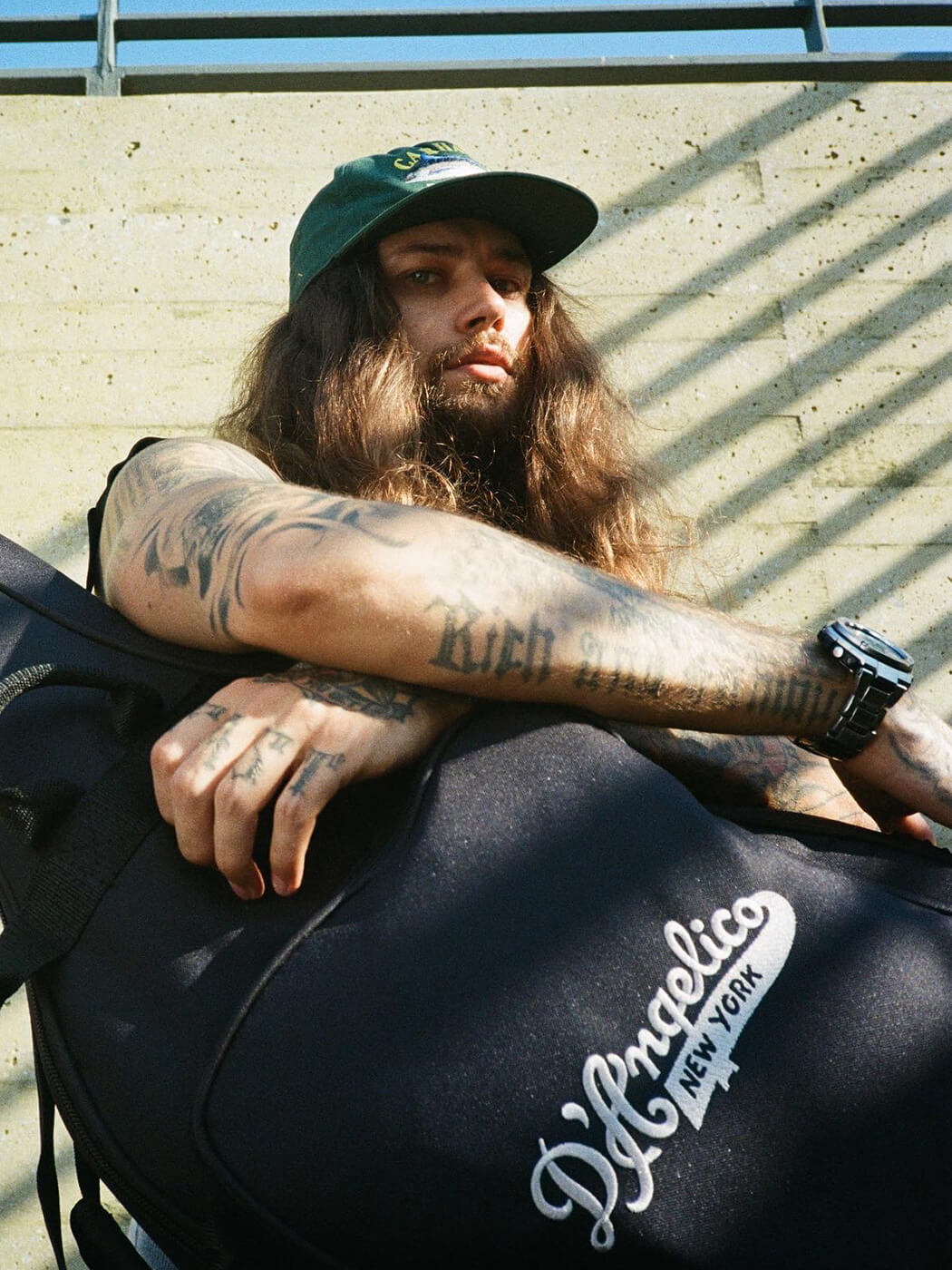
What made you want to decide to study music?
Fortunately I was born and raised in a musical family therefore I didn’t have to choose my profession. Looking up to my parents, I understood from childhood that I would be a musician! My mother listened a lot to orchestral classical music, and also rock operas like Jesus Christ Superstar. My father listened a lot to John Scofield, Chick Corea and Antonio Carlos Jobim – in such an atmosphere it was difficult not to want to make music.
When I was 14 my parents gave me an electric guitar because I really wanted it. Before this, I had been playing piano for several years at school. Then I went to music college, on the advice of my mom. I started as a choir conductor, but after a year of studying I felt that this wasn’t actually what I wanted to do – so I decided to change my field back to guitar playing.
My second studying year I spent as a classical guitarist, but still felt that it wasn’t quite the right path for myself. I realised that I wanted to study jazz, so I moved to the big city (where there was a jazz class) from my small hometown and continued my 3rd year of studying as a electric guitar/jazz guitarist and since then I have continued to do this, moreover, now I do both jazz as a solo artist and rock as part of the band Nervy.
What’s your approach to writing a solo? Is it different for your work in Nervy and your solo albums?
I try not to divide music into genres, because in my playing I combine different styles and techniques from rock and jazz, based on my taste and experience. I fill my solo albums with jazz, rock, rap, hip-hop, and try to make the music as far as possible from classical jazz but still staying in the jazz vibe. It’s similar with Nervy, trying to expand the boundaries of rock by introducing jazz elements.
Tell me a little bit about your latest single Together.
This track we made with my close friend, the incredible Ukrainian drummer Paul Kholodyansky. We have been friends for more than 13 years from music college. Together came about completely by accident, and literally in a week. We met in Warsaw at the end of 2023, had a cup of coffee and, as usual, agreed to do something together someday. But on the next day, Paul just sent me a bunch of takes of drum beats and fills so I sat down to listen and just made a track out of them.
Then we worked on the arrangement literally for a couple of days, and in the end we recorded the final guitars and drums, I played bass, and in just a week we had the master track. I am very pleased with this work, we will definitely release more music together!
Your latest album, Surfing, features a lot of other artists. What was the collaborative process like? Were you writing together over the internet, or in a room, or just sending parts back and forth?
When I finished all the demos to this album, I found myself thinking that it would be cool to invite some specific artists to participate on the record. I started with the track Kyiv Time, which is the first on the album. I invited a young and progressive jazz band from Ukraine, Hyphen Dash, and they did a great job.
Then I invited Bruce Buffer, a famous UFC announcer, to record an intro. The same way he announces fighters, I wanted him to scream “it’s Kyiv Time” in the beginning of the track. Well, to my surprise, he also agreed! And it turned out very well. Then I started inviting other musicians whom I followed through Instagram, sending demo recordings and, fortunately, almost everyone was down to be featured.
So we did everything through the internet, everyone recording their parts on their ends. I spent almost a year getting files from all the artists, but it was definitely worth it – I’m very proud of the result.
A lot of the Ukrainian artists on Surfing recorded their parts under the threat of rocket attacks. How did this affect the album?
I’m really honoured to have such incredible musicians on the record. Their parts were literally recorded in Kyiv during air alarms – this is both terrifying and inspiring! Ukrainians are living through a terrible time now, but alongside this, Ukrainian culture is actively developing. New artists are emerging, new music is being broadcast all over the world and now people from different countries and continents can see it too. I feel strength and new, fresh energy working with Ukrainian artists and this mood, it seems to me, is transmitted through the music really well!
Some of the tones on the album are really unique. What gear were you using on the album, in terms of amps, pedals and guitar?
I played only D’Angelico guitars. Probably the 2 main instruments I’ve used are D’Angelico Excel DC (which is my main instrument for now) and D’Angelico Deluxe Atlantic Baritone. Almost everything I recorded through the Neural DSP Quad Cortex, but sometimes I used the Supro Delta King 12 amp for clean tone. As for pedals, I really love how the Pigtronix Star Eater sounds in the 3rd track Big Cool And Angry. It’s not a simple fuzz, there is something different about it – it sounds really crazy, especially through the Quad Cortex with some compression and EQ. That’s probably the only analogue pedal I used on the record.
How did your relationship with D’Angelico come about?
I have been a proud artist for D’Angelico for almost 5 years. I really love to work with them. In addition, these are high-quality instruments, they are a very progressive, modern company, always open to new ideas. 5 years ago I was invited by a local brand manager to come to the store and test a D’Angelico Excel DC guitar. It was love from the first sound! That’s how I began to collaborate with the company.
What is it about their guitars that drew you to them?
The sound first. And honestly, I really love the look of their bodies and headstocks. I would describe D’Angelico as a “grand piano” guitar sound, very spacious, quite a low and transparent tone. These guitars combine everything I love: stylish looks, playability, and tonal versatility, that’s why I play them!

